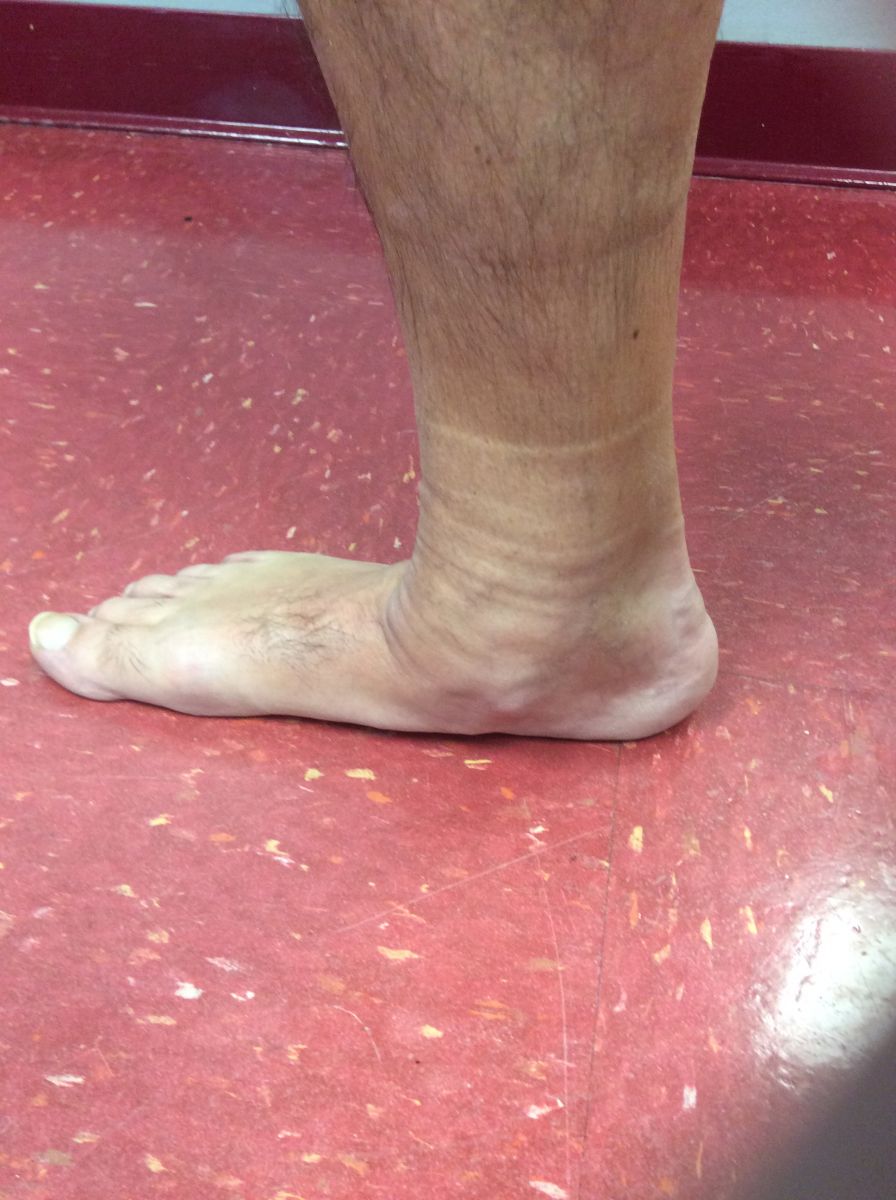
Flat feet, or pes planus, is a very common postural deformity in which the arches of the foot collapse, and the the entire sole of the foot coming into contact with the ground. Flat feet are a common condition of the foot structure. In infants and toddlers, prior to walking, the longitudinal arch is not developed, and flat feet are normal. Most feet are flexible and an arch appears when children begin standing on their toes. Throughout the development from childhood to adulthood, there is constant growth and strengthening that occurs in the body and most people develop normal arches by full adulthood. Some individuals have an arch that simply never develops in one foot or both feet.
There is a functional relationship between the structure of the arch of the foot and the biomechanics of the lower leg, which can be evaluated by a podiatrist. The foot’s arch provides an elastic, springy connection between the forefoot and the rearfoot. Flat feet are generally associated with pronation, a leaning inward of the ankle bones toward the center line. Shoes of children who pronate, when placed side by side, will lean toward each other (after they have been worn long enough for the foot position to remodel their shape). The appearance of flat feet is normal in infants, partly due to "baby fat" which covers the developing arch because the arch has not fully developed yet. Children are encouraged to walk and train barefoot to allow the formation and strengthening of the arches, which most occur by four to 6 years of age.
Many people with flat feet do not experience pain or other problems. When pain in the foot, ankle, or lower leg does occur, especially in children, the feet should be evaluated. Because young children are unlikely to suspect or identify flat feet on their own, it is a good idea for parents or other adult caregivers to inspect them. Parents should also be aware if the child complains of pain, walking oddly, clumsily walk, and early signs of fatigue, child must take many breaks from walking short periods of time. Children who complain about calf muscle pains or any other pains around the foot area may be developing or have flat feet. Pain or discomfort may also develop in the knee joints.
Painful progressive flatfoot, otherwise known as tibialis posterior tendonitis or adult-acquired flatfoot, refers to inflammation of the tendon of the tibialis posterior. This condition arises when the tendon becomes inflamed, stretched, or torn. Left untreated, it may lead to severe disability and chronic pain. People are predisposed to tibialis posterior tendonitis if they have flat feet or an abnormal attachment of the tendon to the bones in the midfoot.
Treatment of flat feet can be implemented if there is associated pain in the lower back, hip, knees, ankles, and feet. Treatment may include but not limited to custom orthotics for arch support, foot exercises as recommended by your podiatrist, physical therapy, steroid injections, non-steroidal anti-inflammatory medications, icing, supportive taping, bracing, are common treatments for painful progressive flatfoot. In cases of severe flat feet, orthotics should be used through a gradual process to lessen discomfort. Surgery may also be an option for treatment.
Please consult your physician before taking any medications or if you are considering surgery. A full comprehensive and thorough evaluation should be done by a podiatrist to ensure that surgery is for you. In cases where surgery is needed for correction, it may be due a torn or damaged tendon and is recommended to restore back to normal function. In the most severe cases, surgery on the midfoot bones may be necessary to treat the associated flatfoot condition. Contact Dr. Theall at Gentle Touch Foot Care to discuss your foot health.
For more information, contact our East Orange office at 973-673-FOOT (3668) .

